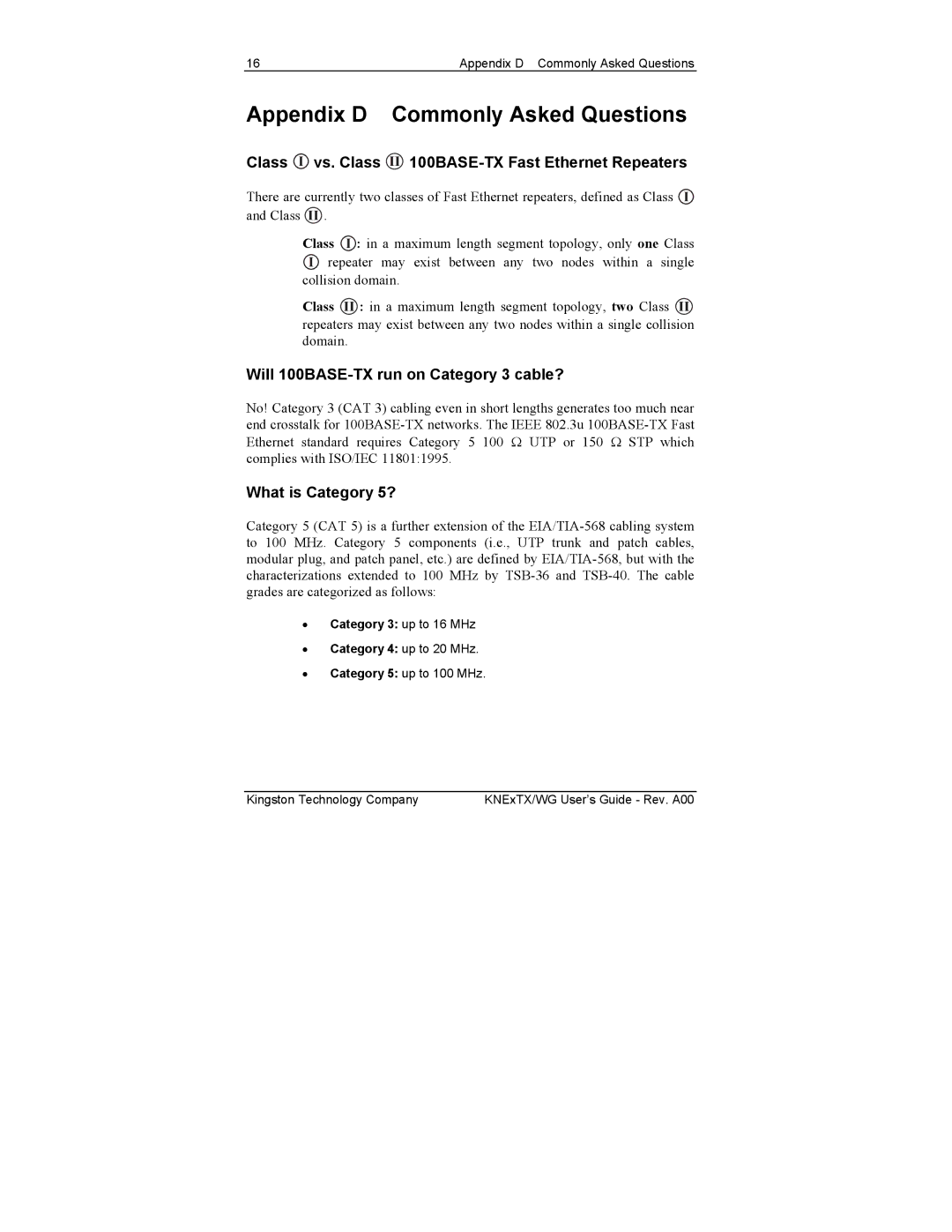
16 | Appendix D Commonly Asked Questions |
Appendix D Commonly Asked Questions
Class I vs. Class II 100BASE-TX Fast Ethernet Repeaters
There are currently two classes of Fast Ethernet repeaters, defined as Class I and Class II .
Class I : in a maximum length segment topology, only one Class
Irepeater may exist between any two nodes within a single collision domain.
Class II : in a maximum length segment topology, two Class II repeaters may exist between any two nodes within a single collision domain.
Will 100BASE-TX run on Category 3 cable?
No! Category 3 (CAT 3) cabling even in short lengths generates too much near end crosstalk for
What is Category 5?
Category 5 (CAT 5) is a further extension of the
•Category 3: up to 16 MHz
•Category 4: up to 20 MHz.
•Category 5: up to 100 MHz.
Kingston Technology Company | KNExTX/WG User’s Guide - Rev. A00 |
